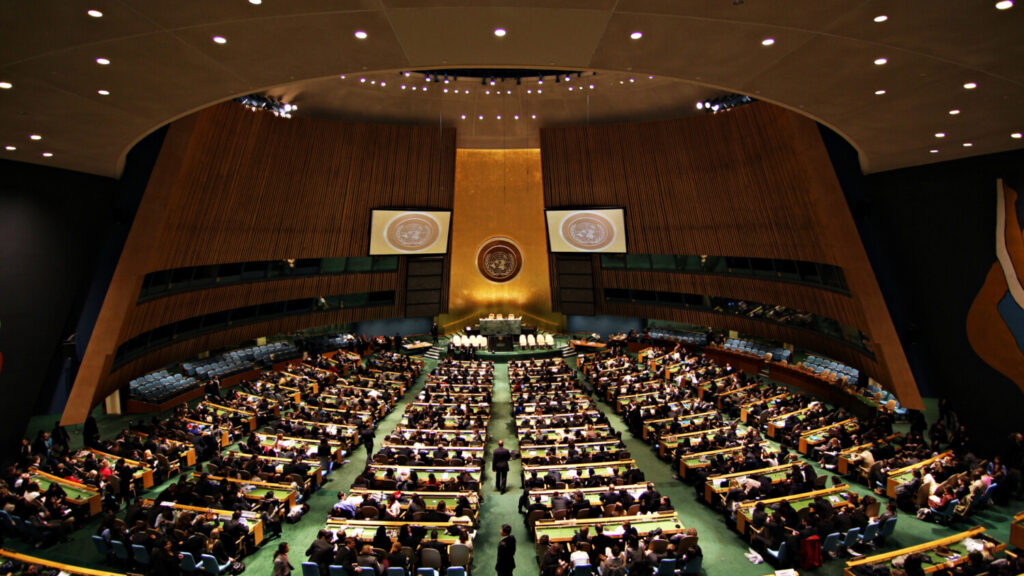Russia Wants to Make Libya its New Syria
The collapse of Bashar al-Assad’s regime on December 8, 2024, marked the end of an era for Russian influence in the Middle East. For over five decades, Syria had been the linchpin of Moscow’s regional ambitions. By hosting Russia’s key naval base at Tartus and the Khmeimim Air Base in Latakia, Syria served as a platform for projecting Russian power across the Levant and the Eastern Mediterranean.
But with the fall of the Assad regime and the ensuing chaos, Russia is recalibrating its strategy. Increasingly, Vladimir Putin’s eyes are turning toward Libya, where Moscow appears determined to establish its next primary base of influence in the MENA region and the Mediterranean basin. Russia’s maneuvering in Libya is not merely opportunistic—it is systematic, strategic, and aimed at filling the void left by Syria’s collapse. Libya is poised to become Russia’s new Syria.
The Inevitable in Syria and the Potential in Libya
Moscow’s intentions are no secret. Over the past year, Russian military flights have steadily shifted from Syria to Libya, transporting equipment, personnel, and logistical support (Vasilyeva, 2024). Russian cargo planes began flying weekly from their Khmeimim Air Base in Latakia to eastern Libya as soon as the offensive that toppled Assad was launched by Hayat Tahrir al-Sham and other Syrian opposition armed groups, knowing from the outset that Assad’s fall was inevitable and preemptively evacuating their assets (Vasilyeva, 2024). These flights suggest a deliberate pivot, repositioning assets and consolidating a presence that is no longer tenable in Syria.
But Russia’s ambitions in Libya predate Assad’s fall. Moscow has been deeply entangled in Libyan affairs since at least 2014, backing General Khalifa Haftar’s Libyan National Army (LNA) and deploying Wagner Group mercenaries to support his campaigns in the Libyan Civil War of 2014-2020 (Lovotti & Pavia, 2024). However, what was once a proxy effort is now transforming into a more formalized military and political foothold. Libya serves as the central hub of Moscow’s activities in Africa, seen by Russia not just as a sphere of influence but as a strategic gateway linking Africa and Southern Europe (Lovotti & Pavia, 2024).
This pivot has become more visible following the Libyan Prime Minister’s public resistance to Moscow’s recent moves to reinforce military bases across the country. Libyan PM Abdul Hamid Dbeibeh has attempted to push back against Russia’s push to expand its bases in eastern Libya, particularly in Benghazi and Sirte (Wintour, 2024). Yet Dbeibeh’s resistance underscores the very seriousness of Moscow’s efforts—Russia is not content with informal influence; it wants entrenched, sovereign control over strategic assets.
Why Libya?
Several factors make Libya the perfect candidate for Russia’s next Syria. First, Libya’s geographical location offers unparalleled access to the Mediterranean. It sits at the crossroads of Europe, Africa, and the Middle East, giving Moscow leverage over critical maritime routes and proximity to NATO’s southern flank. The search for a new Mediterranean anchor point is part of Putin’s broader strategy to ensure that Russia retains a strategic presence capable of countering Western influence and projecting power into Europe, North Africa, and beyond.
Second, Libya’s fragmented political and security landscape makes it ripe for exploitation. Unlike more stable regimes in the region, Libya’s rival governments and militias create an environment where Russia can act as a kingmaker, offering military support to factions like Haftar’s LNA in exchange for basing rights and political allegiance. This mirrors the early stages of Russia’s involvement in Syria, where Moscow leveraged Assad’s vulnerability to establish long-term military facilities.
Moscow’s Continental Ambitions
Putin’s grand strategy hinges on securing military footholds in fractured states, and Libya has become its prime target (Stephen, 2025). The country’s weak central authority, divided factions, and strategic location offer Moscow the perfect conditions to expand its influence and establish a lasting presence (Stephen, 2025).
The pivot is also evident in broader regional patterns. Russia is not limiting its ambitions to Libya but is linking its activities there to a broader strategy encompassing Mali, Sudan, and the Central African Republic (Karr & Tyson, 2025). Russia is integrating Libya into a transcontinental influence network, providing military support, extracting resources, and countering Western-aligned forces across Africa (Karr & Tyson, 2025).
Crucially, this shift should alarm U.S. and European policymakers. Russia’s growing presence in Libya is not an isolated event; it is part of a broader challenge to NATO and European security (Ghoulidi, 2025). Moscow’s ability to control migration flows, energy routes, and regional instability through its Libyan stronghold gives it leverage over Europe that should not be underestimated (Ghoulidi. 2025). Just as Putin viewed NATO’s expansion into Ukraine as a direct encroachment into Russia’s backyard, he is now attempting to replicate that pressure in Europe’s southern flank.
Challenges to NATO
Washington, however, appears to be awakening to this reality. Libya has become a new arena where U.S. and Russian forces are increasingly jousting, with American policymakers recognizing that Moscow’s moves could complicate President Trump’s attempts to “reset” relations with Putin (Kington, 2025). The Biden administration’s prior disengagement from Libya, coupled with Europe’s fragmented Libya policy, has left a vacuum that Russia is eager to fill (Kington, 2025).
Regional concern about Moscow’s intentions is growing. It can be strongly argued that Russia’s repositioning from Syria to Libya is not a tactical stopgap but a strategic recalibration, aimed at securing a long-term Mediterranean foothold after Assad’s fall. Libya is now not just a staging ground for local influence but an integral node in Moscow’s global posture (Cordall, 2024).
Conclusion
Russia is simultaneously negotiating naval access agreements in Sudan and enhancing air capabilities in Libya to compensate for the loss of Syrian facilities (Gbadamosi, 2025). These interconnected moves signal a clear intent: Libya is to be the centerpiece of Russia’s Mediterranean strategy going forward (Gbadamosi, 2025).
Russia’s playbook is well-known by now: identify unstable states, prop up favorable strongmen, secure military facilities, and leverage them for geopolitical influence. Syria was the prototype; Libya is the sequel. And the stakes this time are arguably even higher. With Europe on edge, Africa increasingly contested, and the U.S. struggling to reassert itself in the region, Russia’s deepening entrenchment in Libya represents a direct challenge to Western influence across the Mediterranean and beyond.
In short, Moscow’s pivot to Libya is neither accidental nor temporary. It is the culmination of a deliberate strategy to replace Syria as the primary anchor of Russian influence in the MENA region and the Mediterranean basin. As Assad’s regime fades into history, Libya is emerging as Russia’s new Syria—an indispensable outpost for Moscow’s 21st-century ambitions. The question now is whether Washington and its allies are prepared to confront this reality before it is too late.
Bibliography
Cordall, S.S. (2024). ‘More bullets’: Analysts mull whether Russia will move to Libya after Syria. [online] Al Jazeera. Available at: https://www.aljazeera.com/news/2024/12/24/more-bullets-analysts-mull-whether-russia-will-move-to-libya-from-syria [Accessed 6 Mar. 2025].
Gbadamosi, N. (2025). After Assad’s Fall, Russia Looks to Libya and Sudan. [online] Foreign Policy. Available at: https://foreignpolicy.com/2025/02/19/russia-putin-libya-sudan-naval-air-bases-syria-assad-fall/ [Accessed 25 Feb. 2025].
Ghoulidi, A. (2025). Russia’s Libya Push Should Alarm The U.S. And Europe. [online] The National Interest. Available at: https://nationalinterest.org/feature/russias-libya-push-should-alarm-the-u-s-and-europe [Accessed 8 Mar. 2025].
Karr, L. and Tyson, K. (2025). Africa File, January 24, 2025: Russia Continues Pivot to Libya and Mali; SAF Advances in Khartoum; M23 Marches on Goma; IS Somalia Down but Not Out; AES Joint Force. [online] The Institute for the Study of War. Available at: https://understandingwar.org/backgrounder/africa-file-january-24-2025-russia-continues-pivot-libya-and-mali-saf-advances-khartoum [Accessed 3 Mar. 2025].
Kington, T. (2025). Libya, where US and Russia joust, could test Trump-Putin vibes. [online] Defense News. Available at: https://www.defensenews.com/global/mideast-africa/2025/03/14/libya-where-us-and-russia-joust-could-test-trump-putin-vibes/ [Accessed 15 Mar. 2025].
Lovotti, C. and Pavia, A. (2024). Libya is the crucial hub for Moscow’s activities in Africa. [online] Atlantic Council. Available at: https://www.atlanticcouncil.org/in-depth-research-reports/report/libya-is-the-crucial-hub-for-moscows-activities-in-africa/ [Accessed 13 Mar. 2025].
Stephen, C. (2025). Putin’s Empire-Building Base Hunt Reaches Libya. [online] The Center for European Policy Analysis (CEPA). Available at: https://cepa.org/article/putins-empire-building-base-hunt-reaches-libya/ [Accessed 25 Feb. 2025].
Vasilyeva, N. (2024). Its Syrian Bases in Doubt, Russia Sends Cargo Flights to Libya. The New York Times. [online] 19 Dec. Available at: https://www.nytimes.com/2024/12/19/world/middleeast/russia-flights-libya-syria.html [Accessed 10 Mar. 2025].
Wintour, P. (2024). Libyan PM resists Russia’s move to reinforce military bases in country. [online] The Guardian. Available at: https://www.theguardian.com/world/2024/dec/20/libyan-pm-resists-russias-move-to-reinforce-military-bases-in-country [Accessed 9 Mar. 2025].



